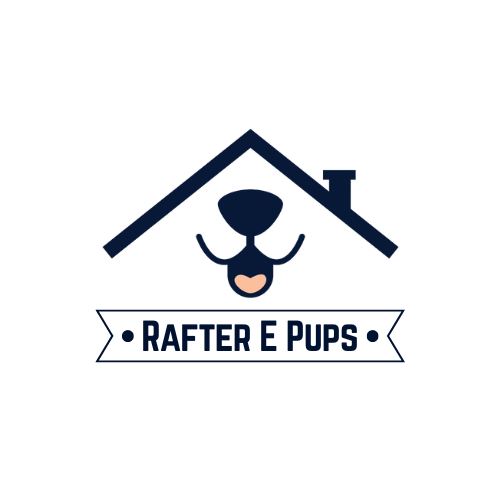Bringing a Cavalier King Charles Spaniel puppy into your home is an exciting and rewarding experience. These charming little dogs are known for their affectionate nature, elegant appearance, and playful demeanor. However, when it comes to caring for your new furry friend, one of the most important considerations is their diet. Feeding your Cavalier puppy the right amount and type of food is crucial for their growth, health, and overall well-being.
The amount you should feed your Cavalier puppy depends on their age and size. Generally, from 6 to 12 weeks, offer 3-4 meals a day with 1/3 to 1/2 cup of puppy food per meal. At 3-6 months, provide 3 meals with 1/2 to 2/3 cup per meal, and from 6-12 months, transition to 2 meals with 1/2 to 2/3 cup per meal. Monitor their weight and adjust portions accordingly. Always follow the specific guidelines on the puppy food packaging, consider body condition, and avoid excessive treats to maintain a healthy, well-nourished Cavalier puppy.
The Nutritional Needs of Your Cavalier Puppy
Before we dive into the specifics of how much to feed your Cavalier puppy, it's essential to understand their nutritional requirements. Like all puppies, Cavaliers have unique nutritional needs during their growth and development stages.
How Does Age Influence the Nutritional Needs of Your Cavalier Puppy?
The nutritional needs of a Cavalier puppy vary depending on their age. Generally, puppies go through different growth stages, each with its own nutritional requirements:
- Newborn to 6 weeks: During the first few weeks of life, puppies rely solely on their mother's milk for nourishment. If you are raising an orphaned puppy, consult with your veterinarian for suitable milk replacement options.
- 6 weeks to 4 months: This stage is marked by rapid growth, and your puppy's diet should provide the necessary nutrients to support this growth. Puppies at this age need a diet that is rich in protein and fat.
- 4 to 8 months: Your Cavalier puppy's growth will start to slow down during this period, and it's important to maintain a balanced diet to prevent excessive weight gain. The protein and fat content in their food should be adjusted accordingly.
- 8 months and beyond: As your puppy reaches the 8-month mark, they are considered adolescents. You can gradually transition them to an adult dog diet, but continue monitoring their weight and adjust their portions as needed.
Why Does Your Cavalier Puppy Need Protein and Fat?
Protein and fat are two critical components of your Cavalier puppy's diet. Protein is essential for muscle development and overall growth, while fat provides energy and supports healthy skin and coat. Ensure that the puppy food you choose contains high-quality sources of these nutrients.
Does Your Cavalier Puppy Need Calcium and Phosphorus?
Calcium and phosphorus are vital for your puppy's bone development. However, excessive amounts of these minerals can lead to skeletal problems, such as hip dysplasia. It's important to strike the right balance, so consult your veterinarian for guidance on the appropriate levels of calcium and phosphorus in your puppy's diet.
How Much Calories Does Your Cavalier Puppy Require?
Caloric needs vary depending on your puppy's age, size, and activity level. Puppies are typically more active than adult dogs, so they need more calories to fuel their growth and play. However, it's crucial to avoid overfeeding, as excessive calorie intake can lead to obesity and related health issues.
Choosing the Right Food for Your Cavalier Puppy
Selecting the right puppy food is a crucial step in ensuring your Cavalier's nutritional needs are met. Here are some guidelines to help you make an informed choice:
- Look for AAFCO Approval: The Association of American Feed Control Officials (AAFCO) sets standards for pet food. Look for puppy foods that meet AAFCO's guidelines for growth and development to ensure they contain the necessary nutrients for your Cavalier puppy.
- Read the Ingredient List: Check the ingredient list on the puppy food packaging. High-quality puppy food should list meat or meat meal as the primary ingredient, and it should not contain excessive fillers like corn, wheat, or soy.
- Consult Your Veterinarian: Your veterinarian is a valuable resource when it comes to selecting the right puppy food. They can provide recommendations based on your puppy's specific needs and monitor their growth to ensure they are on the right track.
- Consider Breed-Specific Formulas: Some dog food brands offer breed-specific formulas, including those tailored to Cavalier King Charles Spaniels. These formulas may take into account the breed's unique nutritional requirements.
How Much to Feed Your Cavalier Puppy
Now that you have a good understanding of your Cavalier puppy's nutritional needs and have selected the right puppy food, let's discuss how much to feed them. Feeding guidelines can vary from one brand to another, so always refer to the specific recommendations on the packaging of the food you choose. However, there are general guidelines you can follow.
Age-Based Guidelines
As previously mentioned, your puppy's age plays a significant role in determining their dietary requirements. Here's a rough breakdown of how much to feed your Cavalier puppy based on age:
6 to 12 weeks:
- Feed 3 to 4 meals a day.
- Provide 1/3 to 1/2 cup of puppy food per meal.
- Monitor your puppy's weight and adjust portions accordingly.
3 to 6 months:
- Feed 3 meals a day.
- Provide 1/2 to 2/3 cup of puppy food per meal.
- Continue monitoring and adjusting portions as needed.
6 to 12 months:
- Transition to 2 meals a day.
- Offer 1/2 to 2/3 cup of puppy food per meal.
- Keep a close eye on your puppy's weight and adjust as required.
12 months and beyond:
- Gradually transition to adult dog food.
- Follow the recommended feeding guidelines on the adult dog food packaging.
- Continue to monitor your dog's weight and adjust portions to maintain a healthy body condition.
What is Body Condition Scoring?
In addition to age-based guidelines, it's essential to monitor your puppy's body condition to ensure they are neither underweight nor overweight. Use a body condition scoring system to assess your puppy's condition, with a score of 5 being ideal. Your veterinarian can help you understand and use this system effectively.
Be Mindful of Treats You Give Your Cavalier Puppy
While it's tempting to spoil your Cavalier puppy with treats, it's crucial to do so in moderation. Excessive treats can contribute to weight gain and disrupt the balance of their diet. If you use treats for training or as rewards, consider using small, low-calorie treats or breaking larger treats into smaller pieces.
Always Provide Fresh Water
Regardless of your puppy's age, always make sure they have access to fresh, clean water. Proper hydration is essential for their overall health and well-being.
What are the Signs That You Are Overfeeding or Underfeeding Your Cavalier Puppy?
Cavalier King Charles Spaniels are prone to obesity, so it's vital to be vigilant about their diet. Keep an eye out for signs of overfeeding or underfeeding to ensure your puppy maintains a healthy weight.
Signs of Overfeeding:
- Rapid weight gain
- Visible fat deposits
- Decreased activity levels
- Difficulty feeling your puppy's ribs due to excess fat
Signs of Underfeeding:
- Slow or stunted growth
- Visible ribs or excessive thinness
- Lethargy and lack of energy
- A rough, dull coat
If you notice any of these signs, consult your veterinarian to adjust your puppy's diet accordingly.
Feeding your Cavalier King Charles Spaniel puppy the right amount of food is a crucial aspect of their care. By understanding their nutritional needs, selecting the appropriate puppy food, and following age-based feeding guidelines, you can help your puppy grow into a healthy and happy adult dog. Regular check-ups with your veterinarian and monitoring your puppy's body condition will ensure that they receive the best possible care throughout their development. Remember, a well-fed Cavalier is a happy Cavalier!

